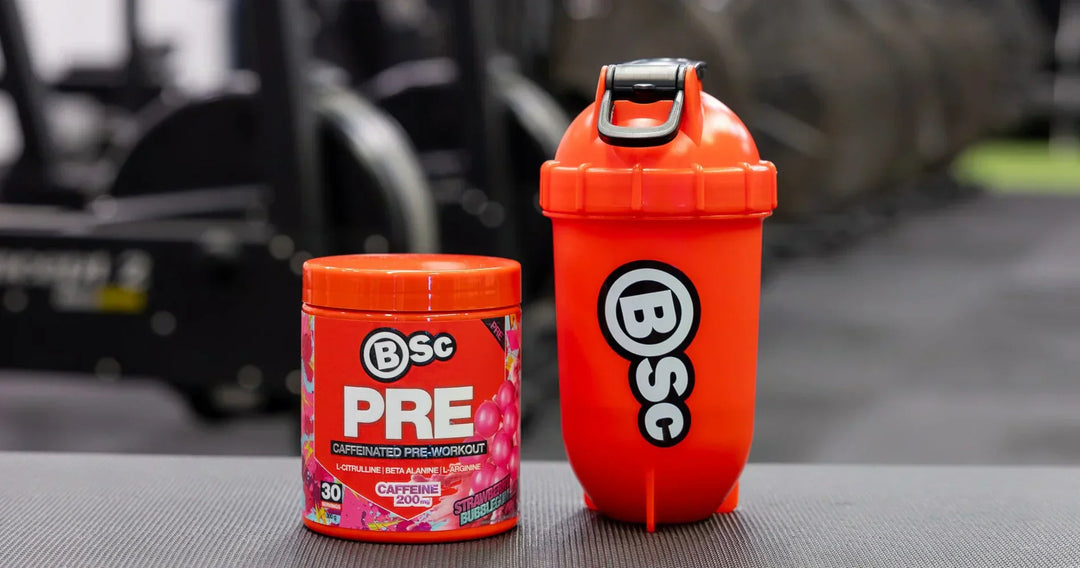Intermittent Fasting and Morning Workouts: Effective?
We all know how difficult it is to find a consistent recurring time to work out in our relentlessly busy schedules. If mornings work best for you and you’re thinking about trying intermittent fasting, whether it’s to lose weight or experience the associated health benefits, then you need to know when and for how long you can fast without affecting energy levels and motivation.
At BSc, we’re talking about 5:2 fasting for weight loss and thermogenic fat burners; it may be the very solution you’re looking for.
Variations of Fasting
If you want to keep your morning workout game strong and you’re looking to adopt intermittent fasting, you need to choose the correct routine that isn’t going to affect your energy and motivation.
1. The 16/8 or 14/10 Method
16/8 - eating times from 10:00 am to 6:00 pm
14/10 - eating times from 9:00 am to 7:00 pm
This is probably the most common approach to intermittent fasting. It may be the easiest, and here is why.
While you’re sleeping, you’re not eating… so you may as well utilise this time and bake it into your intermittent fasting routine. Eat an early dinner and begin your fast and then break it in the morning, traditionally with ‘break-fast’.
But here’s why this may not work for your morning routine.
After fasting for 16 or 14 hours, you may not have the energy storage to complete a successful workout early in the morning. It’s hard to rework the fasting times unless you’re prepared to have dinner at like 4:00 pm; then you could eat before your workout.
We recommend investigating the following methods of intermittent fasting as they are more suited to morning workouts.

2. The 5:2 Method
The 5:2 Fasting Method is a great one for weight loss, and it works extremely well if you’re a morning workout enthusiast.
What is the 5:2 fasting method?
The 5:2 fasting method translates to 5 days of normal dieting and 2 days of fasting. On the 2 days of fasting, you are allowed to consume 1 meal of 200 calories and another meal of 300 calories totalling 500 calories. This method is also suitable for up to 800 calories per day (400 cal and 400 cal meals). The other 5 days are business as usual.
When selecting your fasting days, you have to separate them by at least 1 fasting day, so you are not burning through your energy supplies and exhausting yourself for the rest of the week.
So why is this type of fasting good for people that partake in morning workouts?
If you’re adopting the 5:2, you can select your fasting days on non-working out days. That way, you are cramming the protein and carbs, fueling your energy for the mornings you are working out.
We say ‘cramming’, but it’s important that you don’t overcompensate after your days of fasting by eating more (or less healthy things); you’ll wind up doing more harm than good.
3. Alternate day fasting
The alternate day fasting method is an extreme version of the 5:2, and it looks more like a 4:3 translating to every other day. Fasting one day on and one day off may not be a sustainable method but alternate day fasting for weight loss is one of the most effective simply because it’s the most brutal. It may be an option if you’re looking to lose weight in a short period of time, say before summer or a special event.
To bake alternate day fasting into your morning workout routine, the only real solution would be to fast one day and work out the next, so they are never overlapping.
Read about the effects of coffee during intermittent fasting
4. The 24-Hour Fast
This one’s pretty straightforward. You can pick your preferred time of day to commence and finish. Some choose breakfast to breakfast or lunch to lunch. It’s common for those adopting the 24-hour fasting method to do it on a day they are not required to participate in high levels of physical activity.
You may feel the side effects of low motivation, fatigue, and sometimes even headaches - this is, of course, in extreme circumstances.
To Summarise
If you’re someone that has a consistent morning workout routine, we recommend adopting the 5:2 intermittent fasting method selected on days that you do not work out.
We also do not recommend any fasting for people under the age of 18, women who are pregnant or individuals suffering from heart disease, diabetes, blood sugar problems, or eating disorders.

Thermogenics for Weight Loss
If you’re considering intermittent fasting, but haven't considered thermogenic fat burners, then maybe there’s an easier alternative that you didn’t know about.
What are thermogenic fat burners?
Thermogenics are a supplement that boosts metabolism and burns calories. If you want to read more, see here - What are thermogenic fat burners.
See the Thermogenic products below
/weight-management/thermogenics/calm-stress-support.html
/products/hydroxyburn-shred-300g-lemon-lime
/products/green-tea-tx100-lemon-lime-60-sachets
/shred-ultra-advanced-watermelon.html
/hydroxyburn-shred-super-berry.html




